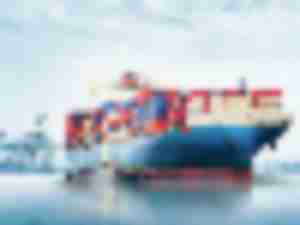Port of Montreal continues record cargo pace and expansion projects
As 2020 begins, there are no signs that Montreal, Canada’s second biggest port after Vancouver, strategically located deep inland in relation to the industrial heartland of North America, is slowing down in terms of both capacity and cargo expansion.
How to navigate the ripple effect of tightening emissions standards
When emissions regulations are implemented for one mode of transportation, an hourglass turns over for other modes.
Port of LA’s Seroka outlines competitiveness strategy
Gene Seroka the executive director of the Port of Los Angeles outlined a new strategy for the Port to regain lost market share.
Damco’s Simon expects some recovery in 2020
Stephanie Simon, Head of Airfreight, Americas Region, Damco’s outlook for 2020
Global shipping trends: What to expect in 2020
Special to the AJOT Mike Short, president of global forwarding, C.H. Robinson
Long Beach’s Cordero says investment in Zero Emissions key to long-term growth
Critics says the cost of doing business at Long Beach and Los Angeles is high and due in part to tough regulations on diesel emissions, however Mario Cordero, executive director of the Port of Long Beach remains optimistic.
Investment flows into Jamaica – Will the Kingston’s Container Terminal upgrade help?
Unbeknownst to many, a US$452 million port modernization project is moving towards completion in Kingston, and it’s already remaking Jamaica’s major port.
USMCA agreement nearing reality…with a remarkable feeling of status quo
The US-Mexico-Canada free trade agreement will become a reality, now that US House of Representatives has voted to approve the treaty through implementing legislation.
Trump Administration supports new rules that industry says will weaken the Jones Act and outsource US jobs
The Trump Administration is supporting new U.S. Customs rules that the Offshore Marine Services Association says will weaken the Jones Act and outsource American jobs in the oil, gas and offshore wind farms industries.
Canada not poised to ratify USMCA before February
With Canadian legislators not due back from a winter break until January 27, the chances appear virtually nil that Canada will ratify before February at the earliest the revised North American free trade accord re-named the US-Mexico-Canada Agreement (USMCA) signed on December 10.
© Copyright 1999–2025 American Journal of Transportation. All Rights Reserved










